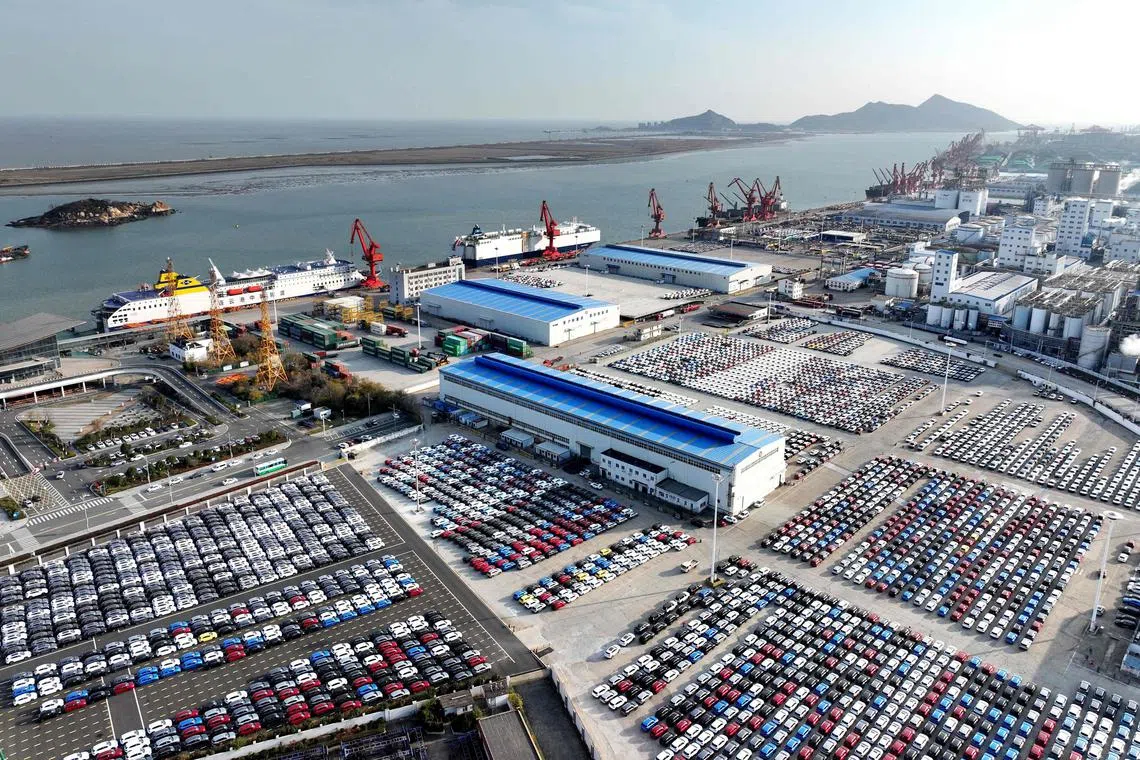China exports hit record in 2024 with front-loading ahead of looming Trump tariffs
Sign up now: Get ST's newsletters delivered to your inbox

The value of Chinese shipments rose almost every month in 2024, pushing it above the highs of the Covid-19 pandemic.
PHOTO: AFP
Follow topic:
BEIJING – Chinese exports hit a record high as companies rushed to get their goods out of the door to make up for sluggish demand at home and ahead of the return of President-elect Donald Trump to the White House.
Exports rose 10.7 per cent to US$336 billion (S$462 billion) in December 2024, according to a statement from the Customs Administration on Jan 13. That drove shipments for the whole of 2024 to a record of US$3.6 trillion.
Imports rose 1 per cent in December 2024, leaving an unprecedented trade surplus of US$992 billion for 2024.
The value of shipments rose almost every month in 2024, pushing it above the highs of the Covid-19 pandemic. Strong demand from overseas helped provide growth for a domestic economy that has struggled due to a continuing housing crisis and weak consumption.
But this may be one of the last high points for Chinese trade, at least directly with the US, with Trump promising to impose even higher tariffs on Chinese goods
Punitive levies may push Chinese companies to divert their exports, flooding other markets with cheap goods and widening trade tensions.
Export prices have been falling for more than a year as deflation inside China worsens and pushes down the cost of goods.
The result is that the growth in the volume of Chinese trade has outpaced value, with total export volumes rising 7.3 per cent through November 2024, according to the Ministry of Transport, faster than the 5.4 per cent rise in values in US dollars.
That can be seen in Shanghai Port, which in 2024 became the first anywhere in the world to handle the equivalent of more than 50 million 20-foot shipping containers.
The port processed 51.5 million boxes in 2024, almost 5 per cent more than in 2023 and 19 per cent more than in 2019, the year before the pandemic. BLOOMBERG

